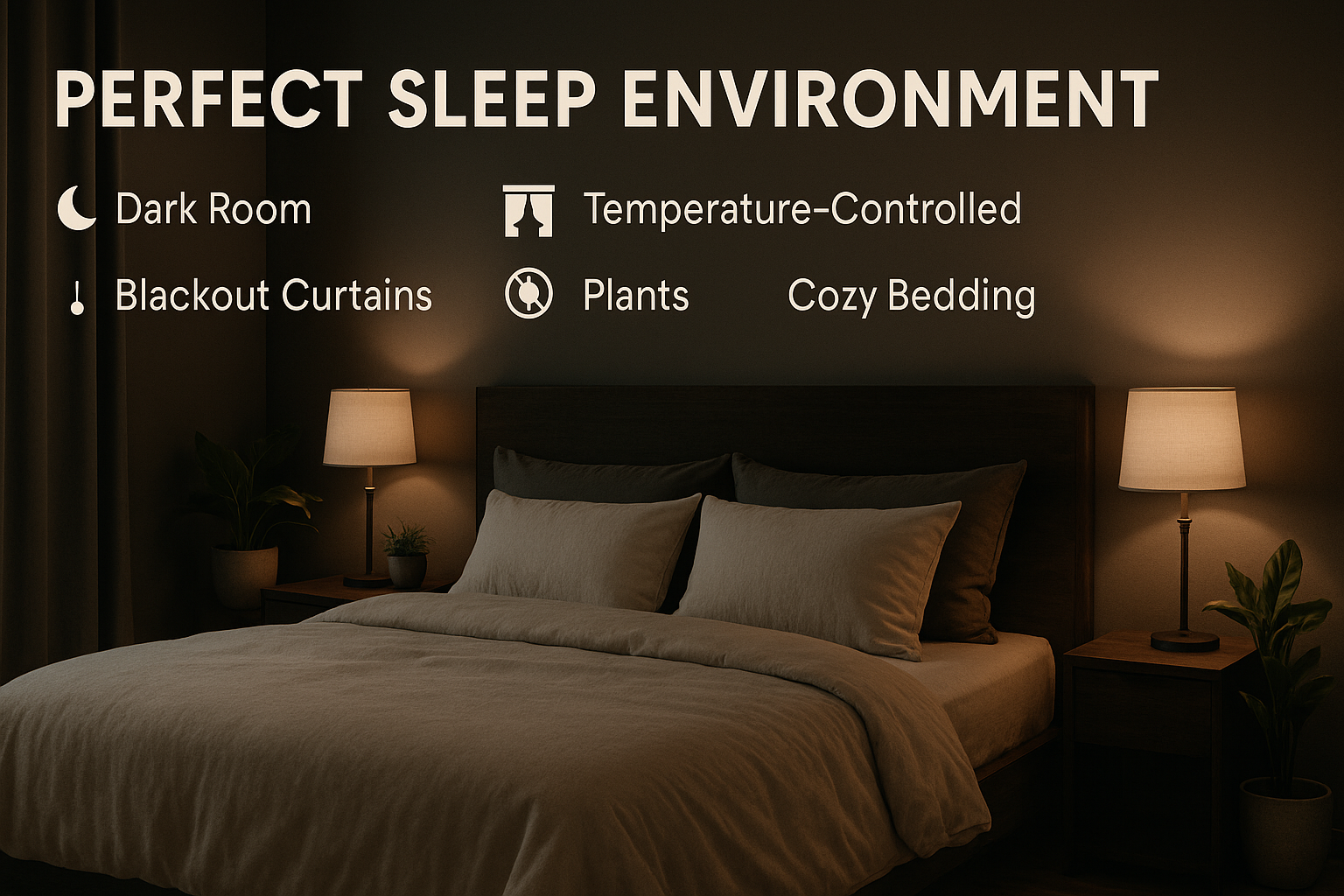Functional Home Remedies and Tips: Practical Steps for Immediate Improvement
Beyond the core pillars, numerous simple, natural remedies and daily habits can significantly enhance your sleep and relaxation. These are easy to implement and can provide immediate benefits.
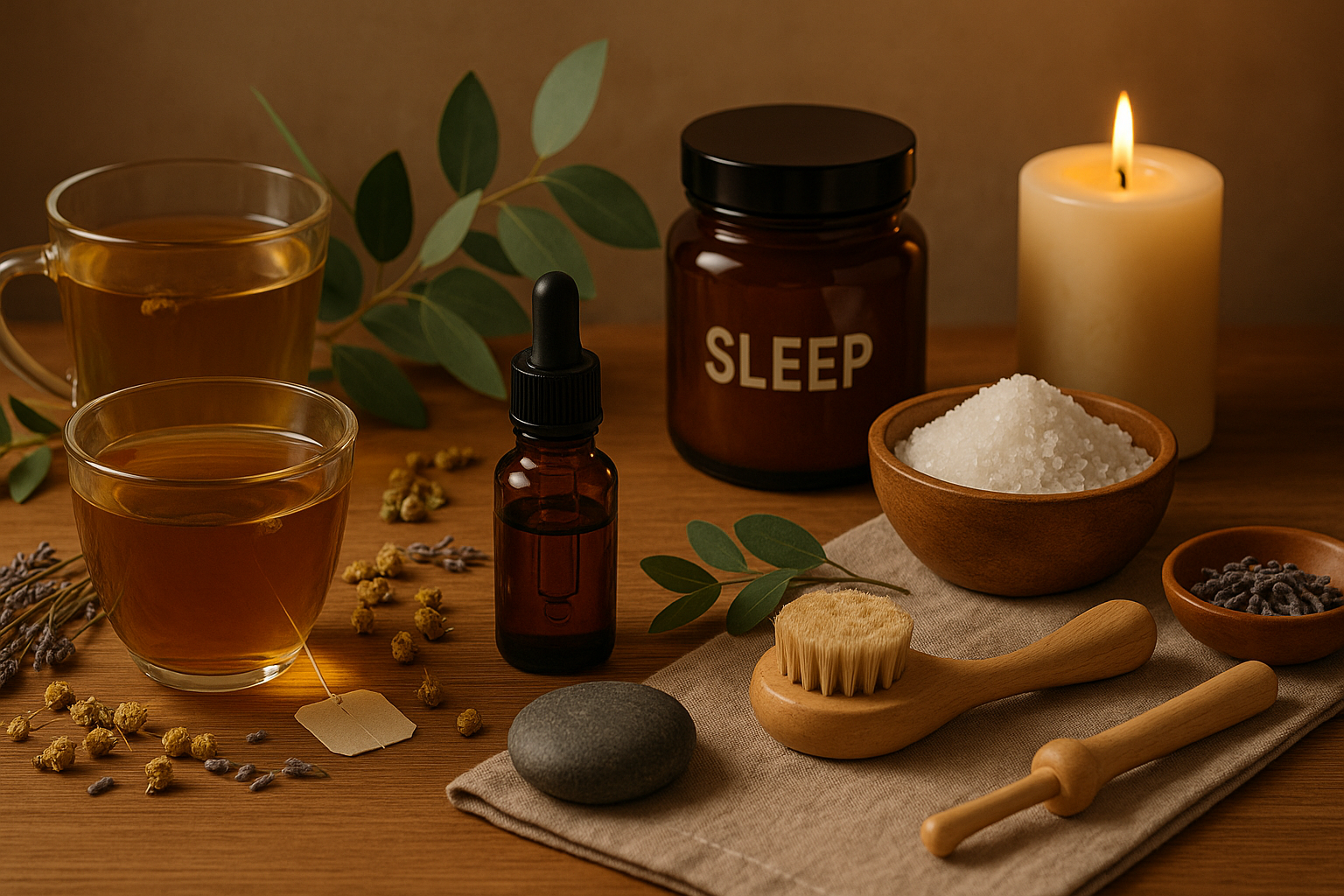
Why Consider Sleep Supplements as Accelerators?
While natural methods and lifestyle changes are foundational, we recognize that for many, targeted support can accelerate results and provide the consistent relief they seek. This is where strategic supplementation comes into play.
- Faster Results: While lifestyle changes take time to show full effects, high-quality supplements can often provide more immediate support for sleep onset and quality.
- Higher Efficiency: Supplements deliver concentrated doses of specific compounds known to support sleep pathways, ensuring your body receives optimal levels.
- Time and Cost Savings: For those with demanding schedules, supplements offer a convenient way to ensure consistent nutrient intake without extensive meal planning.
- Superior Convenience: A simple capsule can provide benefits that might otherwise require complex dietary adjustments or multiple lifestyle changes.
🔬 Science-Backed Sleep Enhancement
Our recommended supplements contain clinically-studied ingredients like Magnesium Glycinate, L-Theanine, and Apigenin - compounds that work synergistically with your natural sleep processes. Each ingredient is backed by peer-reviewed research and formulated for optimal absorption and effectiveness.
View Research-Backed Formulations →Building Scientific Credibility
Every recommendation is rooted in peer-reviewed research. We prioritize transparency, detailing the science behind active ingredients like:
- Magnesium Threonate: For brain health and sleep regulation
- L-Theanine: For calm focus and relaxation without drowsiness
- Apigenin: A flavonoid with natural sedative properties
- Melatonin: For circadian rhythm regulation
We provide clear citations to scientific studies, allowing you to verify the efficacy and safety of these compounds. Our focus is on third-party tested products with optimal dosages and proper timing for maximum benefit and minimal side effects.
Frequently Asked Questions
🎯 Take Action Tonight
You now have the knowledge to transform your sleep naturally. Ready to accelerate your results with science-backed supplements that complement these strategies?
Get Your Sleep Transformation Kit →Join thousands who have already transformed their sleep quality
Scientific References
- Hafner, M., Stepanek, M., Taylor, J., Troxel, W. M., & van Stolk, C. (2017). Why sleep matters—the economic costs of insufficient sleep: a cross-country comparative analysis. RAND Corporation.
- Centers for Disease Control and Prevention. (2020). Sleep and Sleep Disorders: Data and Statistics. Retrieved from https://www.cdc.gov/sleep/data_statistics.html
- Walker, M. (2017). Why We Sleep: Unlocking the Power of Sleep and Dreams. Scribner.
- Roenneberg, T., & Merrow, M. (2016). The circadian clock and human health. Current Biology, 26(10), R432-R443.
- Epstein, L. J., Kristo, D., Strollo Jr, P. J., Friedman, N., Malhotra, A., Patil, S. P., ... & Weinstein, M. D. (2009). Clinical guideline for the evaluation, management and long-term care of obstructive sleep apnea in adults. Journal of Clinical Sleep Medicine, 5(3), 263-276.
- Xie, L., Kang, H., Xu, Q., Chen, M. J., Liao, Y., Thiyagarajan, M., ... & Nedergaard, M. (2013). Sleep drives metabolite clearance from the adult brain. Science, 342(6156), 373-377.
- Goyal, M., Singh, S., Sibinga, E. M., Gould, N. F., Rowland-Seymour, A., Sharma, R., ... & Haythornthwaite, J. A. (2014). Meditation programs for psychological stress and well-being: a systematic review and meta-analysis. JAMA Internal Medicine, 174(3), 357-368.
- Roehrs, T., & Roth, T. (2001). Sleep, sleepiness, and alcohol use. Alcohol Research & Health, 25(2), 101-109.
- Irish, L. A., Kline, C. E., Gunn, H. E., Buysse, D. J., & Hall, M. H. (2015). The role of sleep hygiene in promoting public health: A review of empirical evidence. Sleep Medicine Reviews, 22, 23-36.
- Chang, A. M., Aeschbach, D., Duffy, J. F., & Czeisler, C. A. (2015). Evening use of light-emitting eReaders negatively affects sleep, circadian timing, and next-morning alertness. Proceedings of the National Academy of Sciences, 112(4), 1232-1237.
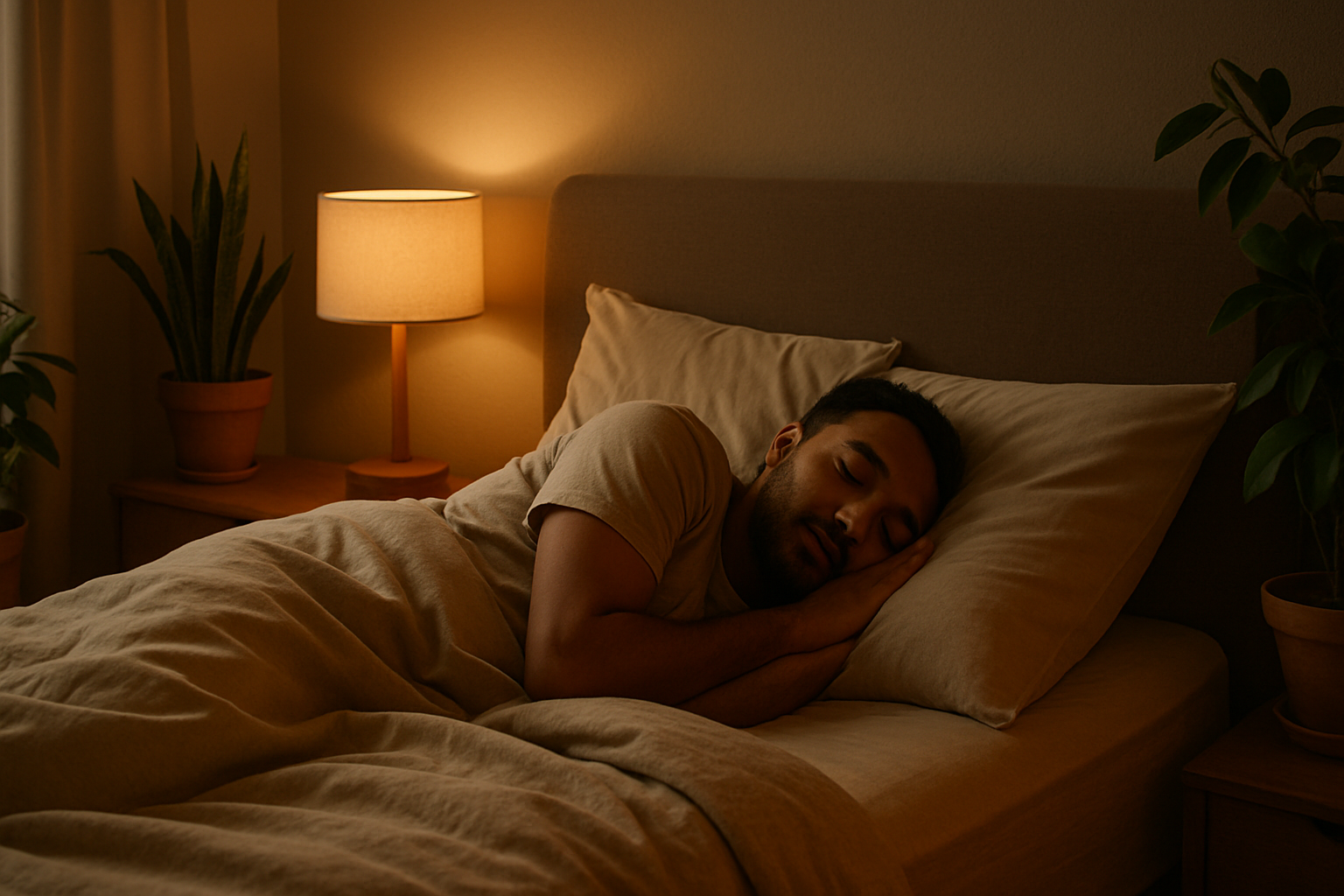
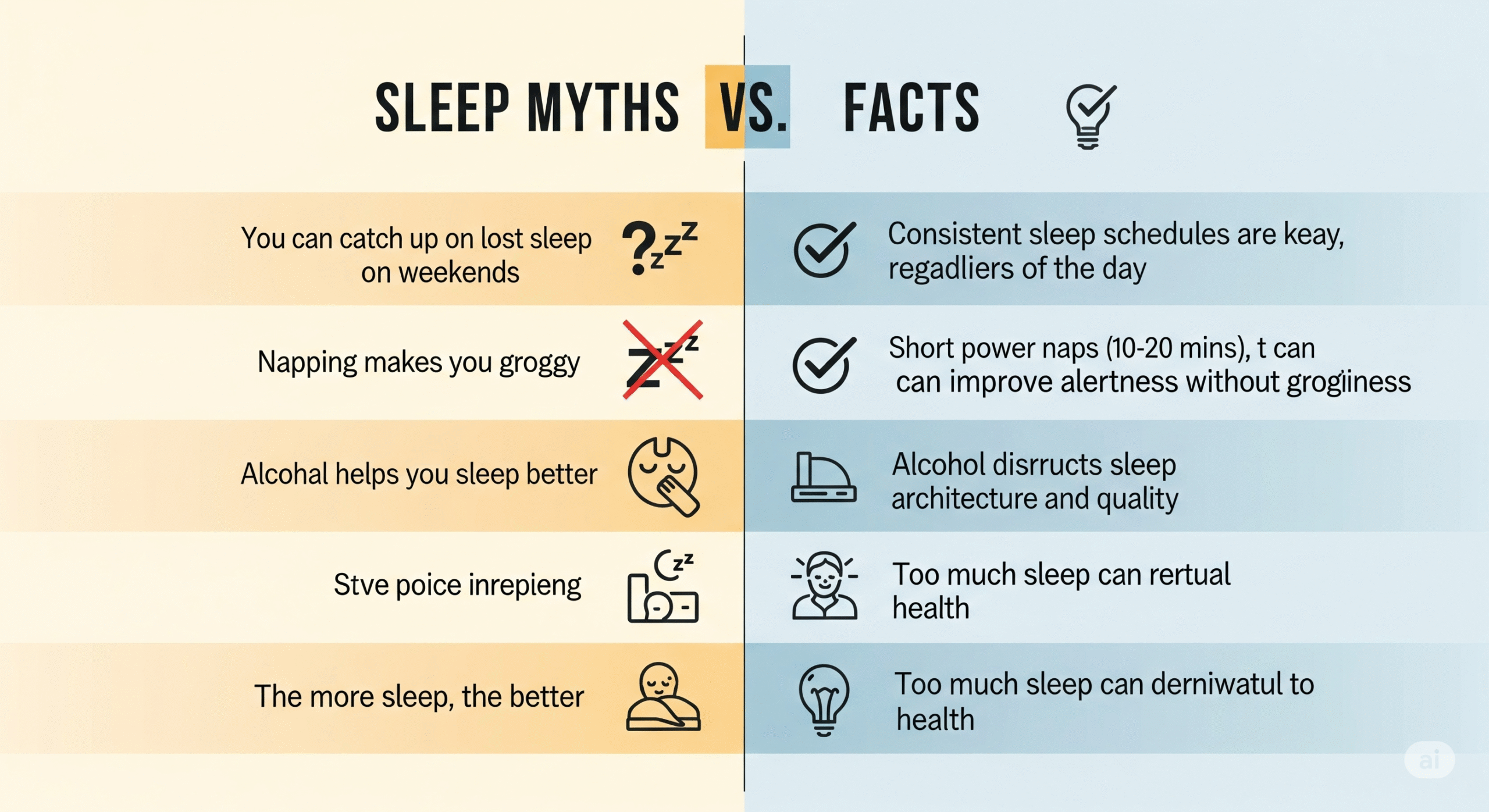
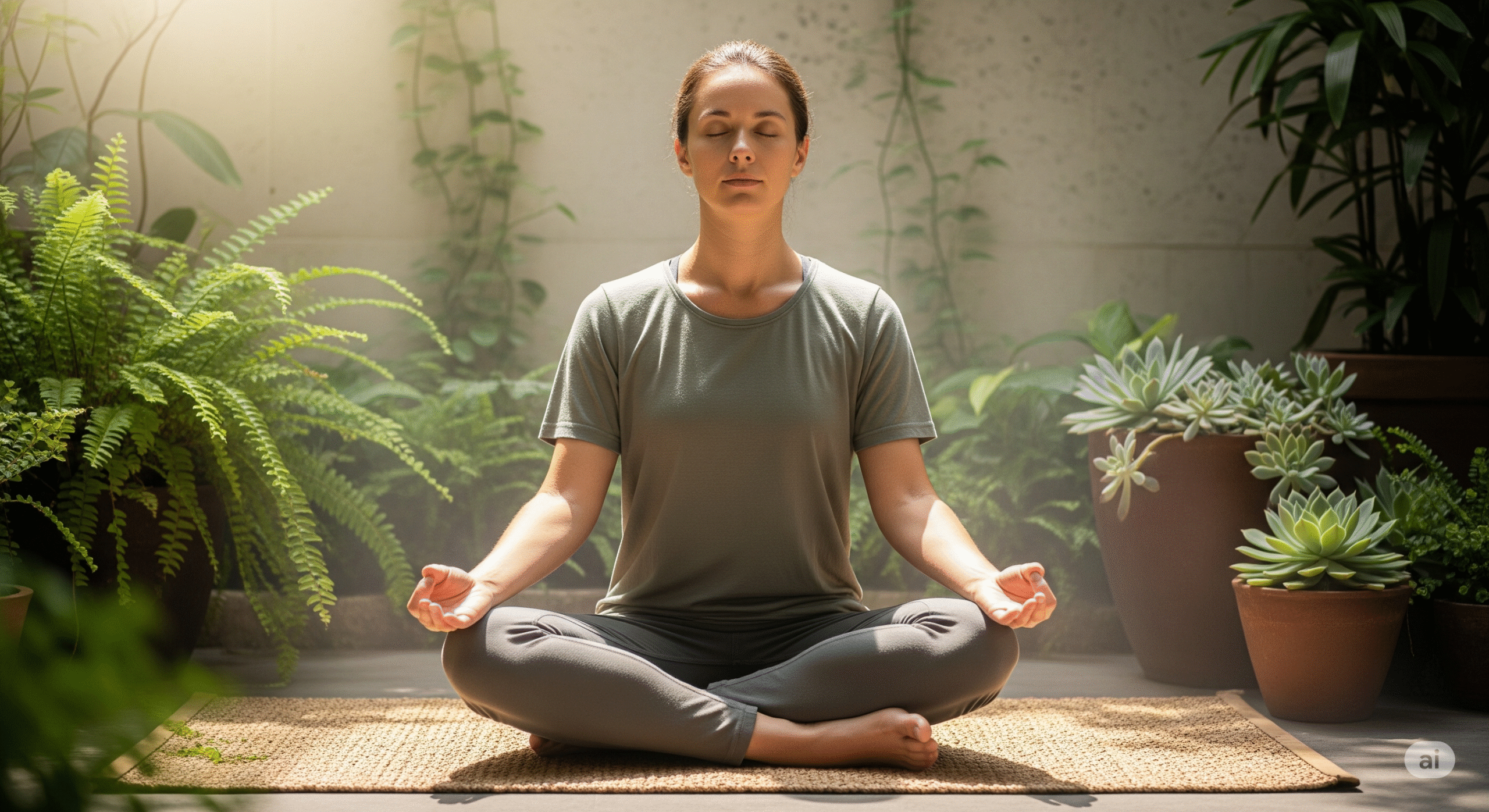 Person practicing meditation in a peaceful setting, demonstrating proper posture and breathing techniques. Soft, natural lighting with plants and calming environment in background.
Person practicing meditation in a peaceful setting, demonstrating proper posture and breathing techniques. Soft, natural lighting with plants and calming environment in background.